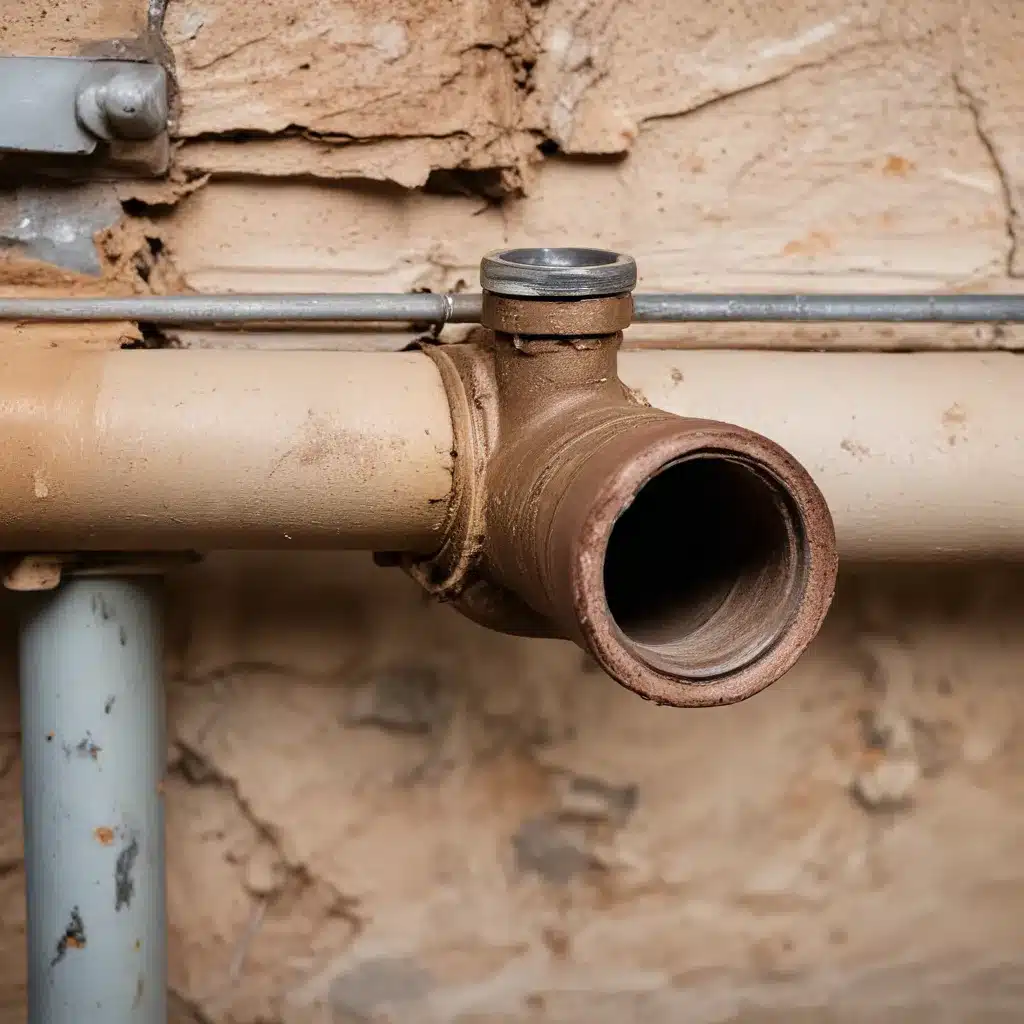
Understanding Pipe Corrosion and Its Impact
Maintaining the integrity of your plumbing system is crucial for the long-term health and efficiency of your home. One of the primary culprits that can wreak havoc on your pipes is corrosion. Whether it’s the gradual deterioration of metal pipes or the erosion of plastic materials, corrosion can lead to a host of problems, from leaks and water damage to reduced water pressure and even complete pipe failure.
The Corrosion Culprits
Corrosion can occur due to a variety of factors, including:
– Water Quality: Hard water, acidic water, and water with high mineral content can all accelerate the corrosive process.
– Environmental Factors: Exposure to moisture, humidity, and temperature fluctuations can exacerbate corrosion over time.
– Galvanic Corrosion: When dissimilar metals are in contact with each other, it can create an electrochemical reaction that leads to accelerated corrosion.
– Bacterial Corrosion: Certain types of bacteria can feed on the minerals in pipes, producing byproducts that corrode the material.
The Consequences of Unchecked Corrosion
Ignoring the signs of corrosion can have dire consequences for your home and your wallet. Leaks caused by corroded pipes can lead to water damage, mold growth, and even structural issues if left unaddressed. Reduced water pressure and flow can also impact the efficiency of your plumbing system, leading to higher utility bills and decreased comfort. In extreme cases, a complete pipe failure can cause catastrophic flooding and costly repairs.
Preventive Maintenance: Your Secret Weapon
The key to conquering corrosion and extending the lifespan of your pipes lies in proactive maintenance. By taking a few simple steps, you can stay ahead of the curve and ensure your plumbing system remains in top condition for years to come.
Regular Inspections and Monitoring
Conduct periodic inspections of your plumbing system to identify any signs of corrosion, such as discoloration, pitting, or scaling. Consider investing in a camera inspection, which can provide a detailed view of the inside of your pipes and help pinpoint problem areas before they escalate.
Water Treatment and Filtration
Treating your water to remove impurities and minerals can go a long way in preventing corrosion. Install a whole-house water filtration system or consider adding a water softener to your plumbing setup. These measures can help neutralize the corrosive properties of your water supply and extend the life of your pipes.
Proper Pipe Selection and Installation
When it’s time to replace or upgrade your plumbing system, be mindful of the materials you choose. Opt for corrosion-resistant options, such as PVC, PEX, or copper pipes, and ensure they are installed correctly by a licensed DD Plumbing and Heating professional.
Insulation and Moisture Control
Protecting your pipes from temperature fluctuations and moisture can also help prevent corrosion. Insulate exposed pipes, especially those in unheated areas, to maintain a consistent temperature and prevent condensation buildup. Proper insulation can also help guard against freezing, which can lead to pipe bursts and further corrosion.
DIY Maintenance Strategies
While it’s always best to have a professional plumber handle major repairs or system upgrades, there are several DIY maintenance tasks you can perform to keep your pipes in top shape.
Flushing and Cleaning
Regularly flushing your pipes can help remove mineral buildup and other debris that can contribute to corrosion. Use a hydro-jetting or high-pressure water cleaning service to clear out any obstructions and keep your pipes flowing freely.
Pipe Wrapping and Insulation
Protect exposed pipes, particularly those in unheated areas, by wrapping them with insulation. This helps maintain a consistent temperature and prevents condensation, which can lead to corrosion. For outdoor pipes, consider using specialized antifreeze insulation to guard against freezing.
Routine Inspections and Monitoring
Regularly inspect your pipes for any signs of corrosion, such as discoloration, pitting, or scaling. Be on the lookout for leaks, reduced water pressure, or unusual noises, as these can all be indicators of a problem. By catching issues early, you can often address them with a simple repair before they escalate.
Addressing Corrosion Concerns
If you do encounter signs of corrosion in your plumbing system, it’s essential to address the issue promptly. Here are some steps to take:
Identifying the Source
Determine the root cause of the corrosion, whether it’s water quality, environmental factors, or galvanic action between dissimilar metals. This will help you develop the most effective solution.
Partial Pipe Replacement
In some cases, you may be able to replace only the affected section of the pipe, rather than the entire system. This can be a more cost-effective solution, particularly if the corrosion is localized.
System-Wide Replacement
For severe or widespread corrosion, a full plumbing system replacement may be necessary. While a more significant investment, this ensures that your home’s pipes are protected against future corrosion and other issues.
Working with Professionals
When dealing with complex plumbing problems or undertaking major repairs, it’s always best to consult with a licensed DD Plumbing and Heating professional. They can provide expert guidance, ensure proper installation, and offer warranties on their work, giving you peace of mind.
Conclusion: A Proactive Approach to Plumbing Longevity
Conquering corrosion and extending the lifespan of your plumbing system requires a proactive and multifaceted approach. By implementing regular maintenance, making strategic material choices, and addressing corrosion issues promptly, you can safeguard your home’s plumbing and avoid the costly consequences of neglect. Remember, a little DIY effort and the occasional professional consultation can go a long way in preserving the integrity of your pipes and ensuring your home’s plumbing system operates at its best for years to come.


